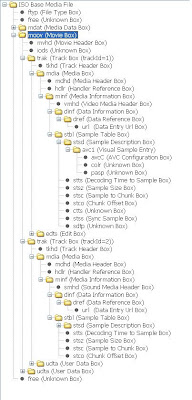Web 2.0 Security
Just read about this article about Web 2.0 security and find it interesting.
Web 2.0 Security: Four Things to Know about the Social Web
Below are the 4 main points:
1) Most Web Posts on Blogs and Forums are Actually Unwanted Content (Spam and Malware)
Especially, this is really true. "a site is reputable, doesn't mean its safe. Blogs and message boards belonging to Sony Pictures, Digg, Google, YouTube and Washington State University have all hosted malicious comment spam recently, and My.BarackObama.com was infected with malicious comment spam." Also, twitter will also be the upcoming social website that may help adversary to spread malicious contents. Read this http://www.pcmag.com/article2/0,2817,2348052,00.asp?kc=PCRSS03129TX1K0000625
2) The Top Search Results from Google are Safe, Right?
Search Engine poison is really a concern. Many people thinks that result from reputable search engine such as Google and Yahoo are free from malicious contents. Although these search engine does filter suspicious website, it is still the user responsibility to ensure what site they are visiting to. See this http://www.cio.com/article/208152/Major_Web_Sites_Hit_with_Growing_Web_Attack
3) You're Really NOT Infected; Be Careful Before You Download That
For this, some simple advices - Download only you are sure what you are downloading. Don't panic when you are shown with "warning" message. Scan your system with antivirus program if you suspect that you are infected.
4) Sadly, You Really Can't Trust Your Friends or Your Social Network
The main catch is do not automatically trust suspicious messages from friends. You will never be sure if your friends infected with malicious content.
Do not accept suspicious attachment even it is from your real friends. Infected system can send malicous content to all contacts without the user knowledge.
Web 2.0 Security: Four Things to Know about the Social Web
Below are the 4 main points:
1) Most Web Posts on Blogs and Forums are Actually Unwanted Content (Spam and Malware)
Especially, this is really true. "a site is reputable, doesn't mean its safe. Blogs and message boards belonging to Sony Pictures, Digg, Google, YouTube and Washington State University have all hosted malicious comment spam recently, and My.BarackObama.com was infected with malicious comment spam." Also, twitter will also be the upcoming social website that may help adversary to spread malicious contents. Read this http://www.pcmag.com/article2/0,2817,2348052,00.asp?kc=PCRSS03129TX1K0000625
2) The Top Search Results from Google are Safe, Right?
Search Engine poison is really a concern. Many people thinks that result from reputable search engine such as Google and Yahoo are free from malicious contents. Although these search engine does filter suspicious website, it is still the user responsibility to ensure what site they are visiting to. See this http://www.cio.com/article/208152/Major_Web_Sites_Hit_with_Growing_Web_Attack
3) You're Really NOT Infected; Be Careful Before You Download That
For this, some simple advices - Download only you are sure what you are downloading. Don't panic when you are shown with "warning" message. Scan your system with antivirus program if you suspect that you are infected.
4) Sadly, You Really Can't Trust Your Friends or Your Social Network
The main catch is do not automatically trust suspicious messages from friends. You will never be sure if your friends infected with malicious content.
Do not accept suspicious attachment even it is from your real friends. Infected system can send malicous content to all contacts without the user knowledge.



Comments
Post a Comment